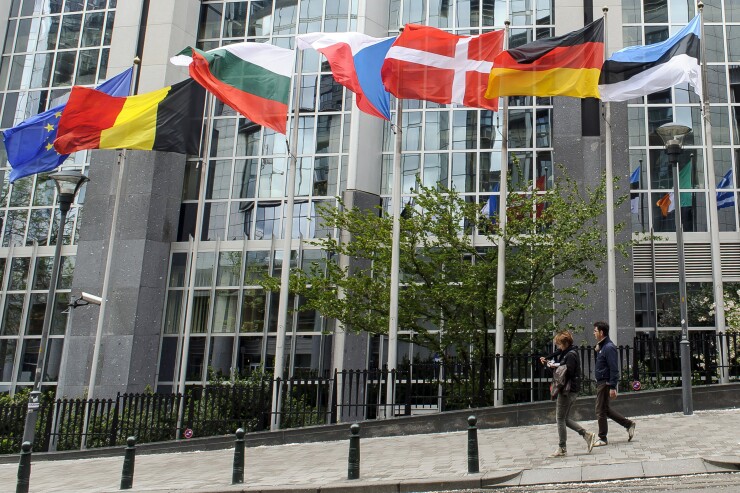The European Union is taking a closer look at the transparency and costs of cross-border currency transactions for consumers.
Part of this process is an examination of the practices around Dynamic Currency Conversion (DCC), the service that offers consumers the choice to pay in their home, familiar currency (as opposed to the local or foreign currency). The European Parliament and the member states are currently negotiating on the draft legislation, proposed by the European Commission in March.
To truly achieve benefits for the consumers though, it is essential that policymakers take a holistic view of the currency conversion market, including credit cards and card issuers, and not only DCC. The currency conversion market is one market and should be considered as such so that any regulations and initiatives put in place are balanced and ensure greater transparency across the whole industry.

DCC already operates within a robust rules-based framework created by VISA and Mastercard that delivers transparent services benefiting cardholders. For all the media attention around the best options for cardholders when making transactions abroad, there is little focus on the lack of transparency on the costs involved with making a purchase in the local currency of the country they are purchasing in where Visa, Mastercard and the issuers manage the conversion.
The aim of the legislation being debated is to ultimately give greater transparency to consumers making cross-border payments, so it’s important to take a step back and consider how far DCC currently advocates for this clarity.
It largely offers full clarity on the financial conditions of a transaction, usually providing the exchange rate, mark up applied and source of reference rate. When properly presented at point of sale in line with best practice and accepted, this leaves the consumer fully informed about the financial consequences of the choice they make before they make that choice.
What they have seen on the terminal at point of purchase is what will appear on their bank statement. Any attempt by DCC service providers to mislead consumers contravenes the card scheme rules and PSD2 regulation that every service provider has committed to abide by and will result in heavy financial penalties.
Where a DCC transaction provides the cardholder with the necessary information, a non-DCC transaction currently does not provide the same transparency. For Visa, Mastercard and issuing banks, there are currently no corresponding measures or costs for the alternative default currency conversion that they provide. A cardholder therefore has little visibility of the exchange rate or costs applied to the transaction or certainty on what amount will ultimately appear on their card statement.
The absence of this information ironically leads to the perception that DCC is much more expensive than other currency conversion options, simply because the true cost of the alternatives is not known to cardholders.
This impacts the ability of the DCC service providers to compete effectively against non-DCC currency conversion options and is not truly comparable for consumers to make a fair and balanced choice. It is important to examine the position of the card schemes in setting the operational costs for providers of alternative currency conversion services, like DCC, on their card networks. In playing the regulatory role, card schemes will forever be allowed to dictate the rules and costs of providing any alternative service.
Visa and Mastercard have gradually increased and imposed costly operating regulations, process fees and compliance fees specifically relating to DCC. This directly impacts the ability of DCC service providers to compete effectively and undoubtedly has a knock-on effect on the availability of fairly priced conversion services to consumers. As long as DCC service providers are operating under the governance of card schemes there will be in-balance and risk of discriminatory practices within the market, which must evolve.
Consumer choice remains an important objective for policymakers and DCC is the only solution that currently delivers any choice or options to international consumers.
Removing DCC as a currency conversion option would not only eliminate this choice, but could see the level of margins applied to foreign transactions increase without the competition between DCC service providers and card issuers. Nevertheless, steps must be taken to address the existing disparities within the market where DCC transactions versus non-DCC transactions are concerned, so that consumers have a fair choice and can make informed decisions when completing a cross-border transaction.
While this is technically challenging and may require years of work, the ultimate goal should be to ensure that all providers of currency conversion services deliver the equivalent level of information to consumers at the point of transaction, enabling them to make a more informed and fair decision.




